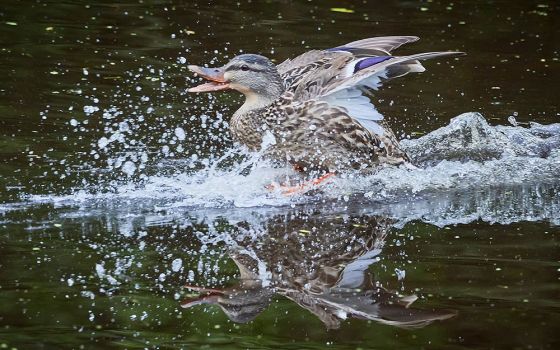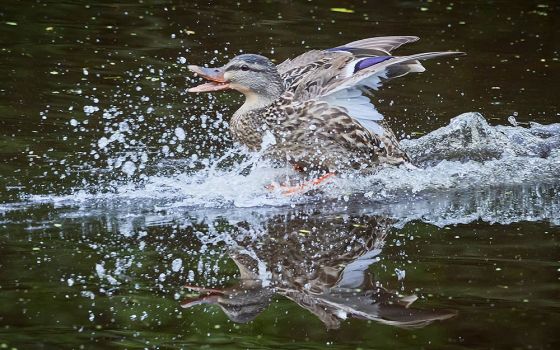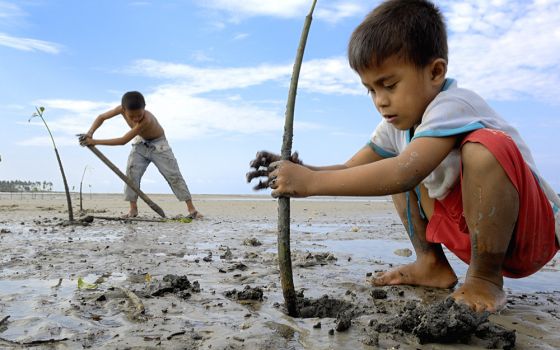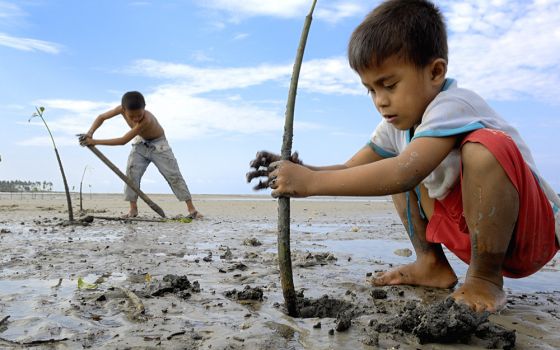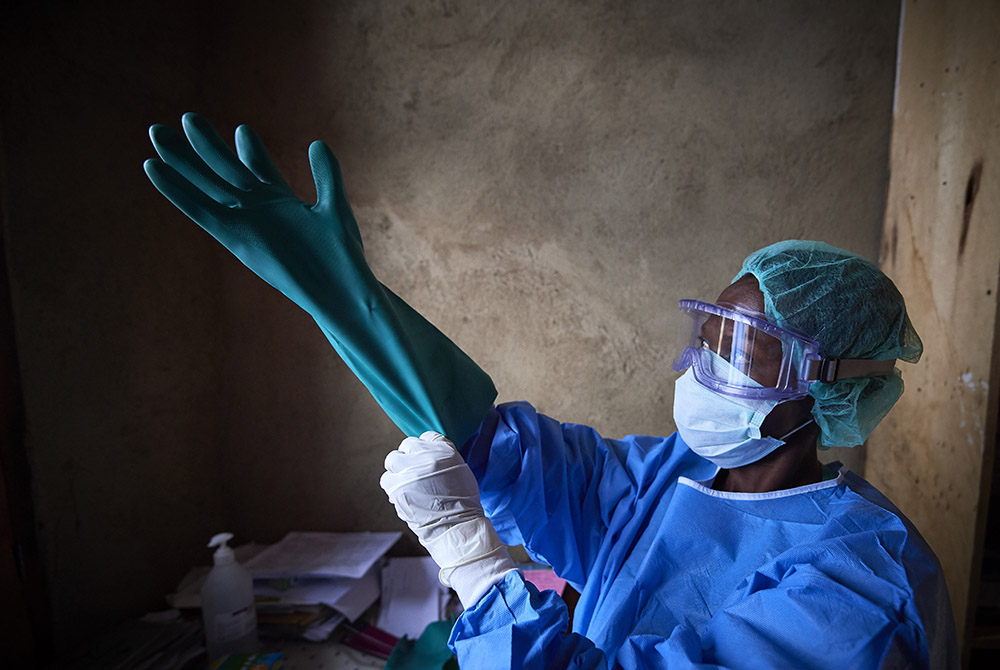
Nurse Adele Kavira Saasita dons protective gear to treat Ebola patients. (Paul Jeffrey)
Editor's note: This Season of Creation, join award-winning photographer Paul Jeffrey for "Lens on Creation" as he examines the world through the lens of his camera and his faith. Sign up here to receive Jeffrey's reflections in your inbox every Monday, Wednesday and Friday from Aug. 31 to Oct. 4.
Nurse Adele Kavira Saasita puts on protective clothing in Beni, a city in the eastern Democratic Republic of Congo. I met her last year while covering the Ebola outbreak that hit the country beginning in 2018. Beni was the epicenter of the outbreak, and Saasita worked in a church-supported clinic on the frontline of the battle against the deadly disease.
Climate change is bad news for Saasita and others fighting diseases like malaria, dengue, Zika and Ebola. Along with deforestation, wetter and warmer weather will encourage the spread of mosquito-borne diseases. And the risk of outbreaks of Ebola, which likely emerged because of human contact with fruit bats, will increase as the bats extend their range and farmers, facing declining crop yields, reach deeper into the forest in search of food.
Followers of Jesus have long felt called to be healers. Around the world, churches run clinics and hospitals and reach out with healing love to people who suffer illness and disease. Healing the planet is the same Gospel vocation. As we combat the climate crisis, we are literally saving lives.
For reflection and action:
As tragic as it is, the current coronavirus pandemic offers us a chance to reset — to make different decisions about how we use the Earth's resources as a step toward addressing the climate crisis. Choose a key area, such as energy, transportation or food production. What proposals for change exist in your locality? How can you get involved in promoting solutions that will reduce greenhouse gas emissions?
[Paul Jeffrey is a founder of Life on Earth Pictures and lives in Oregon. You can follow him on Instagram.]
Advertisement





